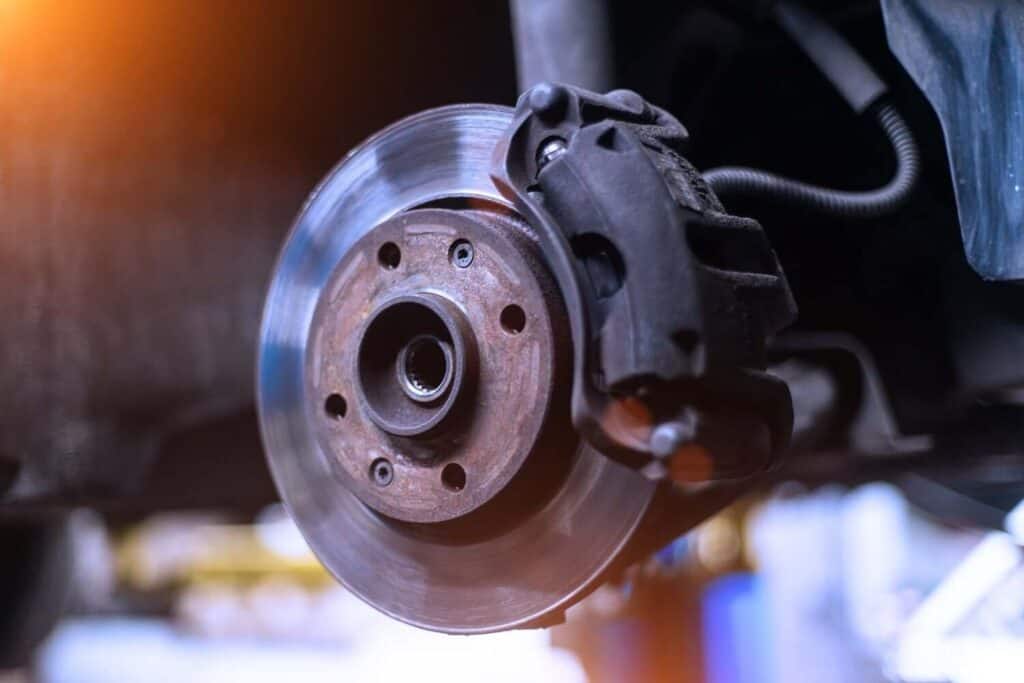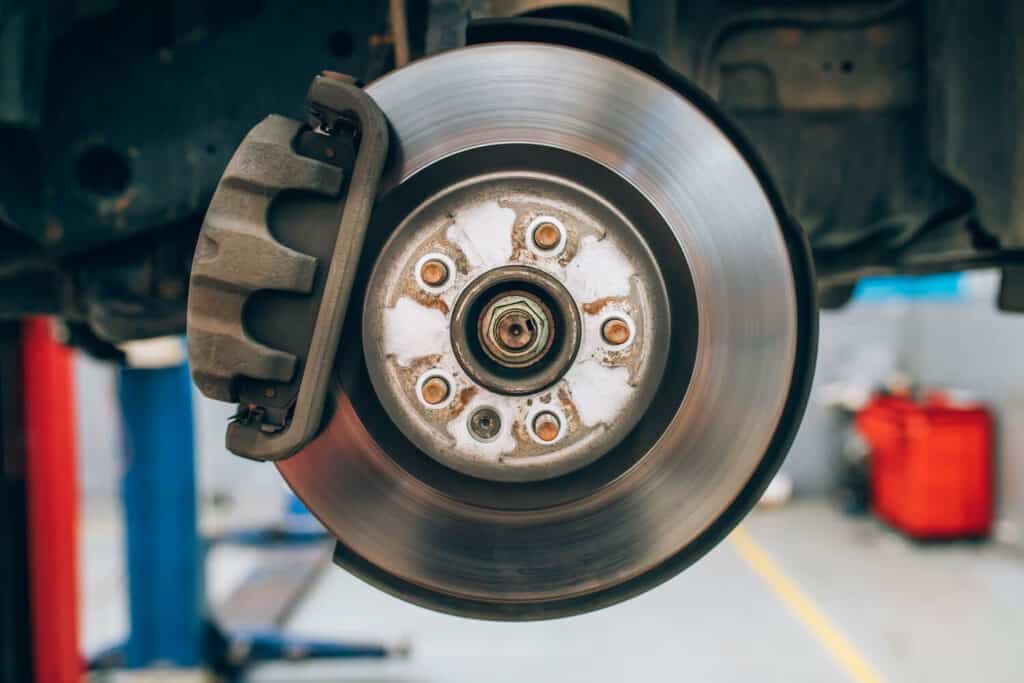The braking system works perfectly when all of components work as they should. These include the brake fluid, pads, rotors, and calipers. The failure of one or more of your braking system components will render your car unfit for road use. So it is important to detect warning signs of brake problems and make necessary repairs. If the brake calipers are bad or seized, you’re likely to experience challenges slowing your car. Thankfully, there are symptoms to always look out for to prevent extensive damage and complete loss of braking power.

1. Skewed movement
If your car is pulling to one side, you might have stuck or faulty brake calipers. This can make driving both uncomfortable and risky. The best way to know the cause of your car’s awkward movement is to have a mechanic inspect your braking system. Damaged calipers should be replaced promptly to keep your car roadworthy and safe.
2. Brake pedal doesn’t release on time
You just applied the brakes and have taken your foot off the pedal, but it stays stuck for a few more seconds. There’s a good chance your caliper is bad and should be replaced.
3. Loss of Fluid
You can easily spot if your car is leaking brake fluid by inspecting your tires and the undercarriage. Brake fluid leaks could also cause your calipers to stick and compromise your car’s braking ability.
4. Squealing sound
Stuck or faulty calipers might also be responsible for the metallic rubbing or squealing noise that comes from a certain area of your car. Worn brake pads also generate noise, but this is usually when you apply the brake pedal. In the case of bad calipers, noise will still be produced even if you don’t use the brakes. Left unattended, the brake could go completely dysfunctional you’re unable to turn the affected wheel.
5. Reduced stopping power
If your brake fluid is leaking and calipers are stuck or damaged, there’s a good chance your car will experience a gradual loss of braking performance, and thus make it difficult to slow your car.
6. Your Brake Pad Wears Unevenly
Bad calipers may cause uneven brake pad wear. As with any other problem in the braking system, this will affect performance. Faster wear could also reduce the lifespan of your brake pad. Your mechanic will detect if this is the problem.
7. Difficult To Disengage Brakes
This is also synonymous with stuck calipers. Your brake should disengage once you take your foot off the pedal. However, if this doesn’t occur properly, your brakes might feel like they are still on. A stuck caliper puts more strain on the braking system and should be repaired or replaced as the case may be.
8. Dashboard Warning Light Turns On
Most cars are equipped with a sensor system that detects brake system problems. This usually triggers the dashboard warning light on the dashboard. Your mechanic will inspect your car and let you know if a bad caliper is responsible for the warning light.
9. Corrosion
Winter driving could speed up wear as the braking system comes in contact with ice, water and salt. Thanks to regular friction, your calipers are unlikely to complain if you use your car frequently. However, if you leave your car parked for an extended period, the calipers can become stuck and fail to move, and thus make it appear like you’re applying your brakes when you are not. Also called “brake drag,” this process may cause your car to pull to one side, increase overheating and faster brake pad wear.

Dangers of Stuck or Damaged Calipers are on Driving
If you ignore warning signs and continue to drive your car with stuck or damaged calipers, you risk exposing your car to the following problems:
1. Transmission Wear
The transmission system is just as important as it is expensive. So replacing this component is something you want to avoid. Keeping your calipers in good shape is one way to reduce transmission system wear. Stuck calipers are a serious safety and financial threat to your car and should be fixed as soon as problems are detected.
2. Overheated Bearings
Stuck calipers cause your brake pads to act on the rotors more often than you apply the brakes. With increased contact is increased friction, which generates more heat. If this circle continues for long, you might end up overheating the bearings and damaging them in the process.
3. Faster brake pad wear
As earlier said, if the calipers are stuck for some reason, the brake pads will be put to more stress. This wears the brake pads faster and could put you at risk of severe brake failure if the problem not fixed on time. Since worn brake pads increase contact between the backing plates and rotors, the latter will also wear faster and need to be replaced early.
4. Discomforting sounds and smells
If you don’t replace stuck calipers on time, you expose braking components to excessive heat and burning. This could lead to your car producing grinding sounds and discomforting smells over time, both of which will make driving anything but comfortable. Like any other component in your car’s braking system, a faulty brake caliper affects performance and could jeopardize safety. Ignoring warning signs is simply a risk you don’t want to take. If you suspect any problems with your brakes or detect signs of a stuck or damaged caliper, have an expert mobile mechanic inspect your car. Our team of mobile mechanics are always on hand to ensure your car remains safe. Contact us today for solutions to faulty brake calipers or any other braking system problems.
